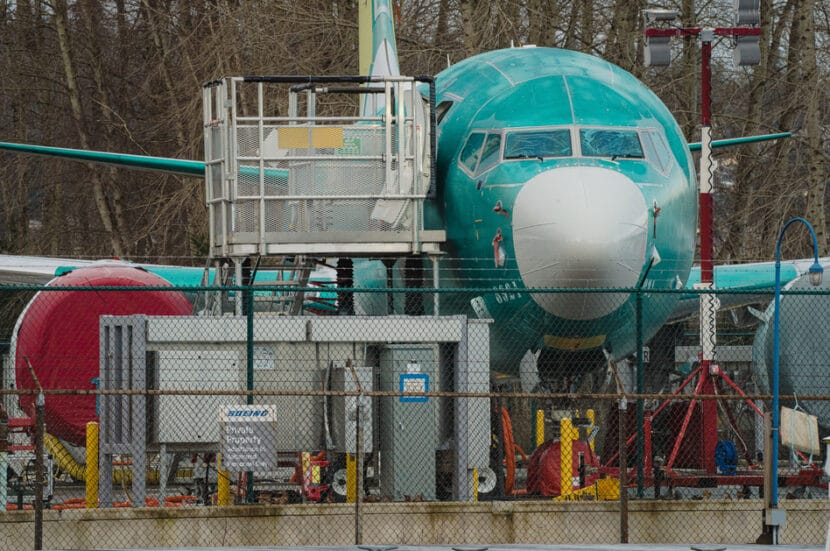WASHINGTON — More than two months after a door plug panel blew off a Boeing 737 Max 9 jet in midair, the top federal safety investigator says Boeing still has not provided key information that could shed light on what went wrong.
National Transportation Safety Board chair Jennifer Homendy told the Senate Commerce Committee on Wednesday that Boeing has not revealed who was responsible for failing to reattach the door plug properly at the company’s factory near Seattle.
“It’s absurd that two months later, we don’t have that,” Homendy said.
The NTSB said in its preliminary report last month that four key bolts which are supposed to hold the door plug in place were missing when the plane left Boeing’s factory last year. The report found the door plug was opened to allow for repair work on misdrilled rivets on the fuselage while the plane was being assembled.
But Homendy says the NTSB is still unable to determine who opened and closed the door plug.
“Boeing has not provided us with documents and information we have requested numerous times,” Homendy told the committee.
“Are you telling us that even two months later you still do not know who actually opened the door plug?,” asked Senator Ted Cruz (R-Texas), the committee’s ranking member.
“That’s correct, Senator. We don’t know,” Homendy replied. “And it’s not for lack of trying.”
After looking through emails and text messages, Homendy said investigators believe the work on the door plug took place on two days in mid-September.
The NTSB has asked Boeing to provide documentation of when it was performed and by whom, Homendy said. But Boeing has told investigators that “they can’t find it,” she said.
Investigators have also been seeking the names of the 25 Boeing employees who are part of the team that opens and closes door plugs. But so far, Homendy says the plane-maker has not provided those names.

A Boeing spokesman disputed Homendy’s account in an emailed statement to NPR. “Since the first moments following the Alaska Airlines Flight 1282 accident, we have worked proactively and transparently to fully support the NTSB’s investigation,” said Boeing’s Connor Greenwood.
“Early in the investigation, we provided the NTSB with names of Boeing employees, including door specialists, who we believed would have relevant information. We have now provided the full list of individuals on the 737 door team, in response to a recent request,” Greenwood said.
Mounting frustration with the company seemed to cross party lines at Wednesday’s hearing.
Senator Maria Cantwell (D-Wash.), the committee’s chair, called Boeing’s lack of cooperation “beyond disappointing.”
Senator Cruz called the company’s response to investigators “unacceptable.” He asked the NTSB to report back in a week to say whether Boeing had agreed to share the names and documents that investigator’s requested.
The senators on this committee have not forgotten how Boeing initially deflected responsibility after two 737 Max 8 crashes in 2018 and 2019 killed 346 people.
It’s possible that the records the NTSB is seeking now do not exist, Homendy said. If they don’t, that would raise serious questions about the company’s quality control practices, she said.
“We have been informed that they have a procedure to maintain documents on when work is performed and including when door plugs are open, closed or removed,” she said. “We have not been able to verify that. And without that information, that raises concerns about quality assurance, quality management, safety management systems within Boeing.”
Boeing also acknowledged the possibility that the documents the NTSB is seeking may not exist.
“If the door plug removal was undocumented there would be no documentation to share,” Greenwood said in his statement. “We will continue to cooperate fully and transparently with the NTSB’s investigation.”
Regulators at the Federal Aviation Administration are also concerned about what they’ve called “systemic quality-control issues” at Boeing and its suppliers. They’ve given the company until late May to come up with a plan to address those problems.
9(MDEwMjQ0ODM1MDEzNDk4MTEzNjU3NTRhYg004))


